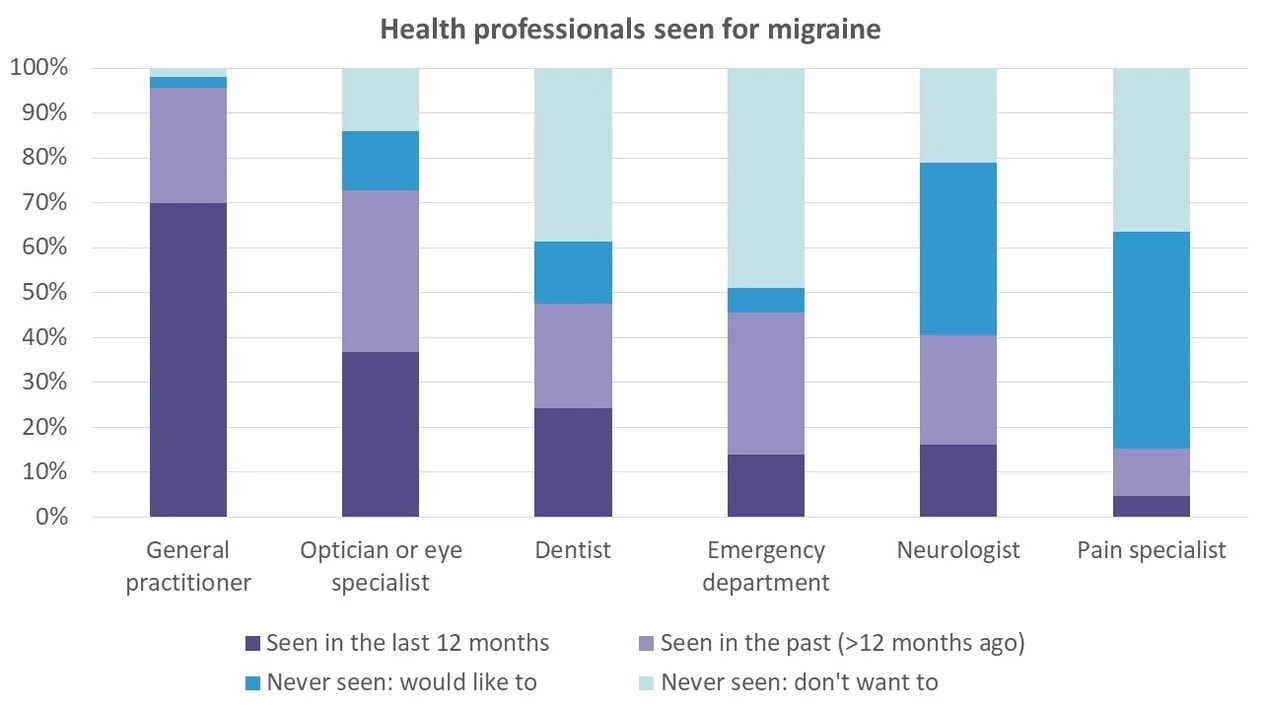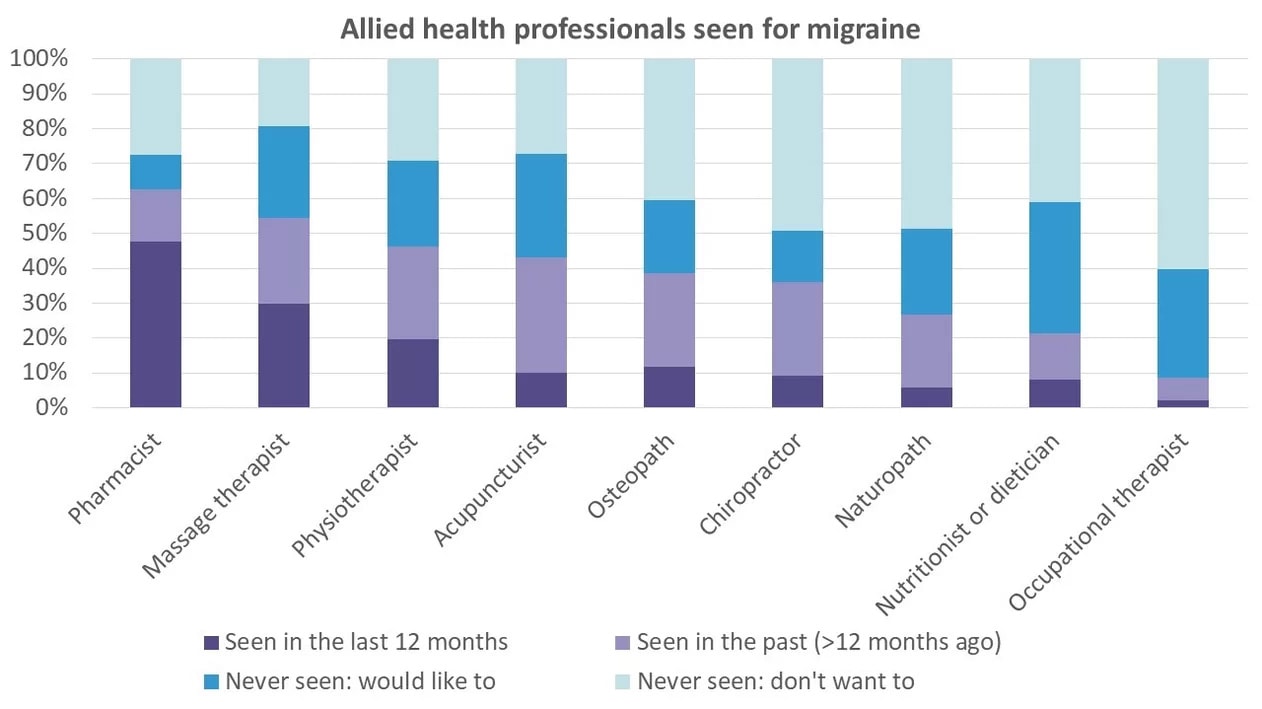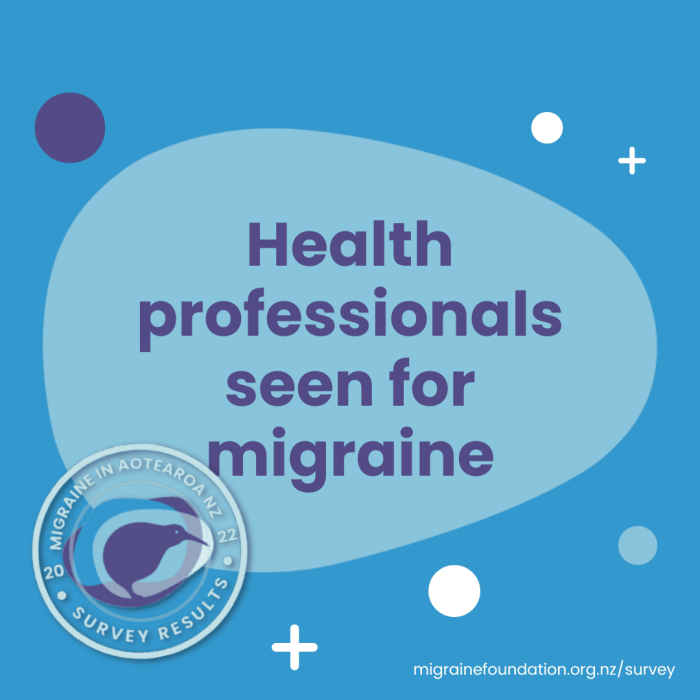Results from the Migraine in Aotearoa New Zealand Survey 2022
One of the many challenges faced by people with migraine in Aotearoa New Zealand is access to health professionals to help with the management of their migraine disease.
We hear about two challenges in particular. The first is being able to see a neurologist or other specialist to confirm the diagnosis of migraine and to get advice about treatment plans, often when the general practitioner (GP) is not sure what to do next. Trying to see a neurologist in the public health system may not even be possible, due to long waiting lists or referrals being kicked back to the GP. Seeing a neurologist in private is expensive and may also involve a long wait. In addition, there are few headache specialists in Aotearoa, neurologists with an interest and additional training in headache care.
The second challenge is being able to access complementary and allied health care services, such as acupuncture, massage therapy and physiotherapy, which are fee-for-service and may require multiple visits, and multiple payments, in order to experience a significant or long-term effect.
In our Migraine in Aotearoa New Zealand Survey, we asked respondents about whether they’d seen a range of health and allied health professionals about migraine. We wanted to know whether people had seen these health professionals recently (in the last 12 months) or sometime in the past (more than 12 months ago) or had never seen them. We also wanted to know how many of those who had never seen each type of health professional would like to see them or didn’t want or need to.
This is what we found (Figure 1). Most people (70%) had either seen a GP in the last 12 months (dark purple bar in the figure) or in the past (26% – light purple bar). Few (2%) had never seen a GP for migraine but would like to. This suggests that the vast majority of people with migraine are able to get to a GP to talk about migraine.

Figure 1
This was not the case for neurologists and pain specialists. Only 40% of respondents had ever seen a neurologist and 16% had ever seen a pain specialist for migraine, but 39% would like to see a neurologist and 38% would like to see a pain specialist (the bright blue bar). This suggests there’s a large gap between what services people with migraine want to access and what the public health system is willing or able to offer.
The use of emergency departments (ED) warrants a mention. Although around half (49%) of respondents had never used ED and did not want to (who would?), a solid 14% had gone to ED in the last 12 months and another third (32%) had used ED previously. Ideally, if migraine disease was well managed in the community, ED visits would be rare and unnecessary. People with migraine only go to ED out of desperation, when there’s no other option because it is usually a deeply unpleasant experience. This suggests there is a lot more that could be done to optimise the management of migraine, for example, through better treatment options, better access to complementary healthcare and more support for people with migraine in workplaces, homes and society.
Besides pharmacy, most respondents had not seen allied health professionals in the last 12 months (Figure 2) but many who hadn’t used these types of services before would like to (e.g. 38% for nutritionist or dietician; 31% for occupational therapist; 30% for acupuncture; 26% for massage therapist; 25% for physiotherapist). This demonstrates another large gap between what services people would like to use and what is available, accessible and affordable.

Figure 2
Note: The figures exclude missing responses (from people who completed some of the survey but did not answer one or more of these questions).


